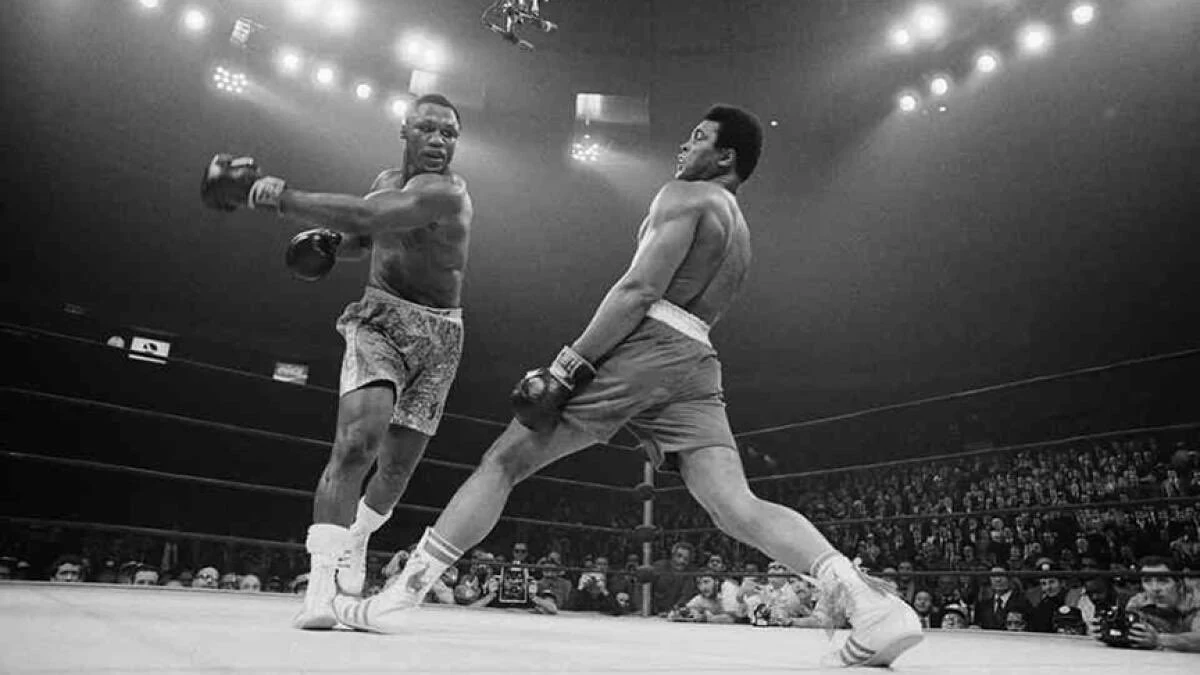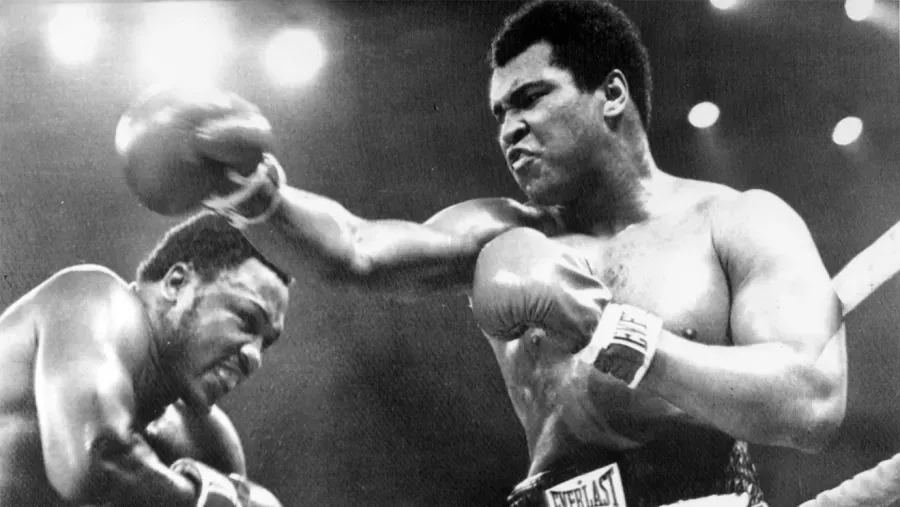
October 1, 1975, marked an iconic moment in boxing history, as Muhammad Ali and Joe Frazier faced off in the unforgettable Thrilla in Manila. This epic showdown, their third and final bout, broke their previous 1-1 tie, leaving the world on the edge of their seats. The grueling battle extended over 14 intense rounds before Frazier's corner made the difficult decision to end the fight before the 15th round, handing Ali a hard-fought victory.
Ali himself would later reflect that this fight had brought him closer to death than anything else in his life.
Just a few days after this monumental event, at a time when Regency gentlemen would traditionally engage in duels, Ali and Frazier engaged in their own war. The Philippine Coliseum was transformed into a sweltering arena, resembling a bear pit, with a full house of passionate Filipino fans witnessing history. This legendary encounter, dubbed the 'Thrilla in Manila,' undoubtedly stands as one of the greatest heavyweight title fights ever.
Even after 45 years, the memory of that morning remains etched indelibly in the minds of those who watched. Just the year prior, Ali had astounded the world with his astonishing victory over George Foreman in the Rumble in the Jungle, a performance that many consider his defining moment. Norman Mailer even wrote an entire book about it called "The Fight." However, what unfolded in Manila surpassed it all; it was the fight of a lifetime.
On that fateful day in Quezon City, amid the scorching Philippine heat, Muhammad Ali and Joe Frazier not only engaged in an epic battle but also delivered memorable words that would echo through history.
As the punches flew and the rounds unfolded, Muhammad Ali, known for his poetic flair, offered up a memorable quip between rounds. He famously said to his trainer, Angelo Dundee, "Man, this is the closest I've ever been to dying. Don't stop it, Angelo. Let me go out on my shield." These words reflected Ali's indomitable spirit and his unwavering determination to see the fight through, no matter the cost.
Joe Frazier, on the other hand, displayed his own brand of resilience and heart. Despite the relentless punishment he endured, Frazier's cornerman, Eddie Futch, made the heart-wrenching decision to stop the fight before the final round. Frazier protested, demonstrating the kind of warrior spirit that defined his career. "I want him, boss," Frazier implored Eddie Futch. "Give me one more round." It was a moment of raw determination and bravery that left an indelible mark on the fight's legacy.

These memorable words and poignant moments captured the essence of the Thrilla in Manila, a battle that transcended sport and entered the realm of human drama. Ali and Frazier's words and actions that day serve as a testament to the enduring legacy of this historic event, reminding us that it was not just a boxing match but a display of courage, resilience, and the unyielding human spirit.
It was a bout that transcended the boundaries of the sport, forever altering the lives of both fighters. For Ali and Frazier, this was a fight that pushed them to their limits, with Ali later describing it as "the closest thing to dyin'."
The term 'epic' is often thrown around casually in the world of sports and entertainment, but in the case of the Thrilla in Manila, it fits perfectly. This event was boxing's equivalent of "Gone With The Wind." Ali even set the stage with a poetic proclamation: "It will be a killa and a chilla and a thrilla, when I get the gorilla in Manila." The legacy of this epic clash continues to captivate fans, reminding us of the enduring spirit of these two boxing legends.
Comments
Post a Comment